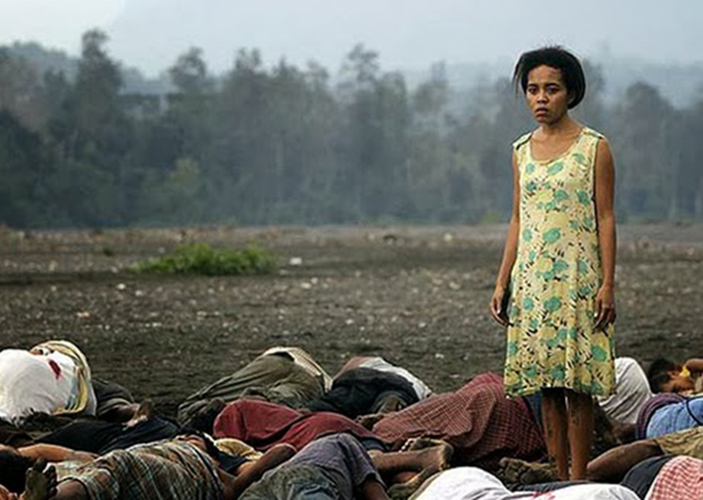
JAKARTA (Pacific Media Watch / The Jakarta Globe / Jakara Post): Indonesian activists say the presidential candiates in the July 9 elections must be made to discuss their human rights records at the next presidential debate.
The Jakarta Globe reported that the the Setara Institute, a think tank that advocates for peace and democracy, and the Commission for Missing Persons and Victims of Violence, or Kontras "had long recommended to the General Elections Commission, or KPU, that it make the issue a central theme of one of the five scheduled debates".
The human rights record of Prabowo Subianto while he was an Indonesian army general has been frequently called into question. Kontras has even asked the KPU to bar candidates with human rights abuses on their record from standing in the elections.
The themes of the debates are democracy, clean government ad legal certainty; economic development and welfare; domestic politics; human resources development and science and technology and food, energy and the environment. The next debate takes place on June 15.
The Jakarta Post reported this week on a leaked copy of a letter which allegedly proves that Prabowo also ordered army units to “arrest and detain” Indonesian activsts from the pro-democracy group, the People’s Democratic Party (PRD) in 1998.
The letter showed that Prabowo was misleading the public when he said the army units had acted on their own initiative, the Jakarta Post reported.
Previous reports in the Jakarta Globe have also implicated Prabowo in the "worst massacre" in East Timor's history, in 1983 in an East Timorese village called Kraras.
Wanted posters
Villagers have reportedly "decorated their houses with wanted posters of 19 generals seen as being responsible for the country’s bloody past" - including a poster of Prabowo.
A local resistance group killed 16 Indonesian soldiers, and in response the Indonesian army burnt the group's family homes and killed approximately 287 people, including a baby, with dozens more disappearing without a trace.
Prabowo's army unit had been seen in the region during that time and villagers said two of his bodyguards had "directed the killings that turned Kraras into a village of widows", journalist Aboeprijadi Santoso wrote last year.
But Prabowo said earlier this year that the reports were “based on unproven allegations, innuendos and third-hand reports”.
And Kristio Wahyono,a former Indonesian representative to the United Nations Transitional Administration in East Timor (UNTAET), wrote yesterday in the Jakarta Post that there were still unanswered questions about Prabowo's role in the 1978 murder of Timorese national hero, Nicolau dos Reis Lobato.
"Reports at the time said Lobato was shot by the unit led by, then captain, Prabowo," Wahyono wrote.
He said that as a founding member of the East Timorese Fretilin party, Lobato was regarded as the first ever Prime Minister of Timor-Leste.
"New pleas have been submitted to the Indonesian diplomat in Dili on the occasion of every commemoration of Timor-Leste Independence Day. The issue has been highly sensitive in relations between the two countries for years" wrote Wahyono.
David Robie on the Kraras massacre
'Pak' Prabowo seeks to 'clear' his name
This work is licensed under a Creative Commons Attribution-NonCommercial 3.0 New Zealand Licence.




